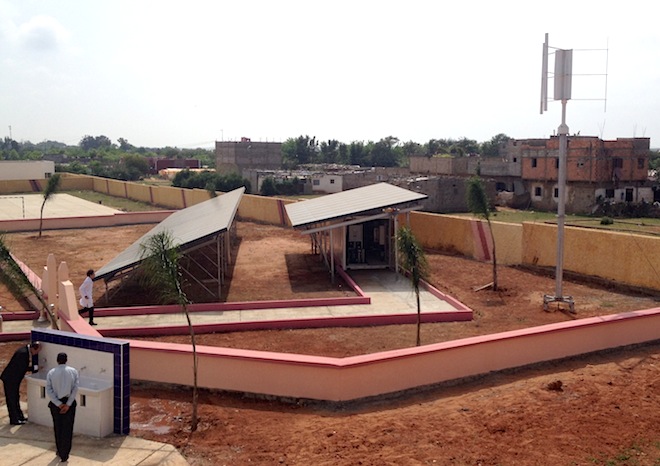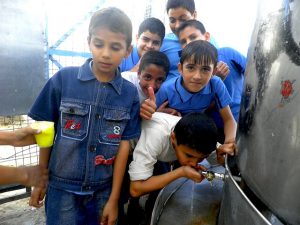You might not want to tell your Moroccan grandmother, but technology first developed by the European Space Agency (ESA) that recycles urine and waste water is being implemented to provide clean drinking water for 1,200 university students.Groundwater in Sidi Taïbi, a small town roughly an half hour’s drive outside of Rabat, has become contaminated over the years – particularly with nitrates and fertilizer that Phys.org reports renders the water unfit for human consumption.
To counter this problem and provide for a growing population, the University of Kenitra developed a partnership with UNESCO to apply ESA’s technology at the school.
Powered by both solar and wind energy, the closed-loop water cleansing process involves controlling “… organic and ceramic membranes with holes just one ten-thousandth of a millimetre across – 700 times thinner than a strand of human hair,” according to Phys.org.
“These tiny pores can filter out unwanted compounds in water, in particular nitrate.”
Related: New Moroccan handicraft complex replaces polluting tanneries in Fez
In space, astronauts can’t be encumbered by excess waste, so the ESA has developed innovative techniques to put it to good re-use. They are currently working to combine other elements, such as bacteria, algae, filters and high technology with the waste water to provide life-giving oxygen, water, and food.
This is all pretty heady stuff for the Middle East, where recycling waste water has long been viewed as risky business given the strong view that Muslims have about all things potentially unhygienic. There are complex rituals associated with anyone who defiles themselves in certain ways – by having sex, for example, or coming into contact with impurities.
But desperate measures are required during desperate times; we think this experiment could have enormous ramifications not just in Morocco, but throughout the region. It’s important for local people to notice science’s efficacy so that they can trust the source of their drinking water.
Until now, the technology has not been used for more than 16 people. A similar system was installed for researchers at the Concordia Research Base in Antarctica in 2005 and it continues to function well to this day – despite bitter weather conditions – with very little maintenance required.
Firmus from France is working with Belectric from Germany to expand ESA’s technology, and if their project is successful, they hope to scale it up by a factor of 10 so that the rest of the town can also enjoy access to clean drinking water.
This is huge.





2 thoughts on “Daring Moroccan university recycles urine as drinking water”
Comments are closed.